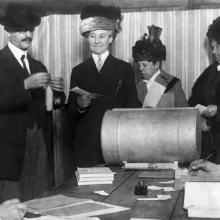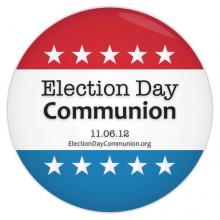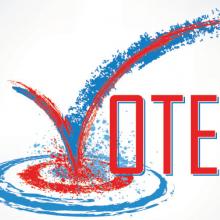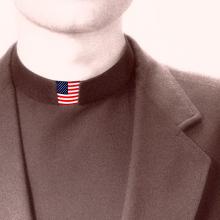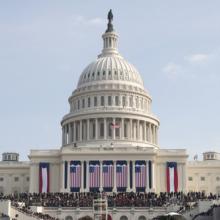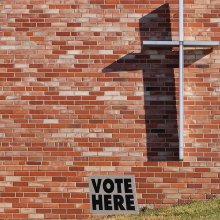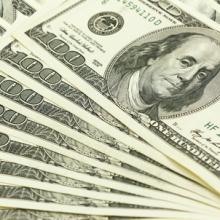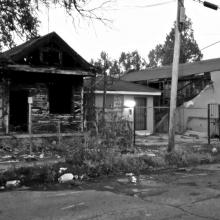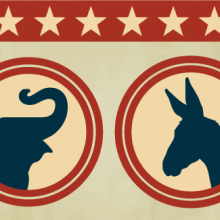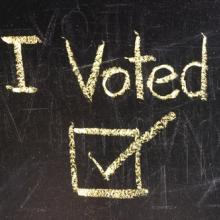2012 election
It’s here, God — Election Day in America. Today is the day when Americans everywhere are given the privilege and responsibility to exercise dominion (agency) at the polls.
Scripture tells us every human being is made in the image of God. We are, therefore, equally worthy of protection of the law. The United States Constitution and its Amendments tell us we are equally worthy of life, liberty, and the pursuit of happiness. Yet, at this very moment, laws stand poised to snatch dominion from the hands of the poor, the weak, and the vulnerable, ethnic minorities, students, and the elderly. Some scurrilous elected officials have worked behind the scenes to suppress the ability of voters to elect the person of their choice — all for the sake of politics
I’m tired of reading blogs from my White Christian brothers about why they are choosing to vote. There. I said it.
I’m all for being a part of the democratic process, but it seems a bit odd to me that so many of these bloggers are coming from a position of power and privilege they themselves have always had. It seems a bit arrogant to choose something that was always theirs.
The way I see it, they had better vote. The vote of the White male is what finally allowed people like me – a woman, an immigrant, a non-native English speaker – to have the right to vote. I didn’t have a voice. I didn’t matter. Neither did my ancestors, who immigrated here under quota systems developed by people in power for the benefit of the country and the powers-that-be.
And there still are people who have no voice, who have no right to vote, but they are directly impacted by the politicians, referenda, judges, and local officials as well as the “agendas and policies.” As a Christian who is new to the process, its a privilege and responsibility I don’t take lightly because it isn’t a given. I’m not American born. We are not post-racial America, and the fact of the matter is the church isn’t either. We are working on it, but we aren’t there.
Did you know that in 1882 Congress passed the Chinese Exclusion Act denying citizenship and voting rights to Chinese Americans? Yup, they could build the railroads but they can’t vote.
October was Interfaith Month for Prop 34, a time set aside for leaders of faith traditions to address the question of California’s death penalty and advocate for its replacement. Hundreds of faith community’s have endorsed Proposition 34 because we believe the best way to do justice in California is to replace the death penalty with life in prison with no possibility of parole.
The will to see justice done is deep within the human spirit. We may not always agree on what “justice” looks like, but the belief in a just and fair society — and the desire to bring it about — are at the heart of how we live together and form a community. In religious traditions like Christianity, Islam, Judaism, and countless others, doing justice is a calling to enact God’s will.
The next question is, of course, what does that mean? Discerning justice can be even harder than doing justice.
Tuesday, Nov. 6, is Election Day. As we’ve seen these past months, in a closely divided country, elections bring out the worst in us. Hundreds of millions of dollars in negative advertising, families and churches divided, each side convinced that a victory by the other side will be disastrous for the country.
It is clear that Christians will vote in different ways — some for Barack Obama, some for Mitt Romney, some for another candidate, and some will not vote. But Tuesday evening, Christians in more than 800 congregations will be gathering together for communion, regardless of party, political affiliation, or denomination.
The Election Day Communion campaign is the vision of several pastors to build unity in Christ in the midst of theological, political, and denominational differences. In sharing communion together, the Campaign says, Christians can reaffirm our allegiance to Christ and remember some basic truths.
SALT LAKE CITY — As Americans cast their ballots and the clock ticks toward midnight in Mitt Romney’s quest for the White House, this much is clear: Americans didn’t know much about Romney's Mormon faith when this “Mormon moment” began.
Now, thousands of headlines, dozens of TV newscasts, and one Tony-winning Broadway musical later, Americans still don’t know much about Latter-day Saints and their beliefs.
But they know more. All those stories educated millions of observant Americans about The Church of Jesus Christ of Latter-day Saints. Still, some “understandings” remain misunderstandings — and many views of the religion are still skewed, exaggerated or flat-out wrong.
Here are 12 persistent myths about Mormonism.
Next week I will vote for the first time in a presidential election. I became a naturalized U.S. citizen two years ago, giving up my Korean passport, my (not)green card, and pledging allegiance after having lived in the U.S. since the spring of 1971.
I actually studied for my citizenship exam out of fear and habit – fear that the wrong answer would mean restarting a process that had cost money, time, and emotions, and habit because I grew understanding not studying was not an option. The process actually took years for me, wrestling through ambivalence, frustration, grief, and gain to get to a point where the privileges, advantages, and necessities of becoming a citizen and my faith as a Christian pushed me over the edge.
During the 2004 presidential election season, Sojourners put out a bumper sticker with these words: “God Is Not a Republican, or a Democrat.” The number of orders was overwhelming and we kept running out. The simple message struck a chord among many Christians who were tired of the assumptions and claims by the Religious Right that God was indeed a Republican, or at least voted a straight-party ticket for the GOP. They also absurdly implied — and sometimes explicitly stated — that faithful Christians couldn’t support Democratic candidates. We said that voting was always an imperfect choice in a fallen world, based on prudential judgments about how to best vote our values, that people of faith would always vote in different ways — and that was a good thing for a democracy and the common good.
Our efforts appeared to inject some common sense into our nation’s political discourse, but given recent electoral statements and newspaper ads from some conservative Christian leaders, it appears the message bears repeating — God is still not a Republican or Democrat.
If I had to translate her words into Navajo, I would say “ádin.” Ádin means nothing, none, zero.
I couldn't believe my ears. I was visiting Iowa in the first week of January during an election year. Presidential candidates were crisscrossing the state — kissing babies, shaking hands, and pleading for the vote of everyone they met. Campaign events were taking place in high school gymnasiums, community centers, and local businesses throughout the state. Many of the people I met had personal stories of meeting one of the candidates, shaking their hands, and talking about their issues. There are 99 counties in the state of Iowa, and a few of the candidates were taking the time to stop and hold campaign events in each and every one of them. But there I was, just a day before the caucuses, standing in the community center and tribal offices of the Meskwaki Settlement near Tama, Iowa, with the tribe’s executive director telling me that not a single presidential candidate had held a campaign event in their community.
I shouldn't have been surprised. After all I live on the Navajo Reservation. Our reserve is nearly 26,000 square miles with about 300,000 enrolled tribal members, and I cannot recall in my lifetime a presidential candidate visiting our reservation and campaigning directly to our people.
The apostle Paul calls the church in Corinth a body — and that’s political language: “God has arranged the parts in the body, every one of them, just as he wanted them to be … As it is, there are many parts, but one body” (1 Cor. 12:18-20).
As Dale Martin argues in his book The Corinthian Body, Paul gets his language about the social body, the political body, from other Greco-Roman speeches and letters. He uses a style of writing and speaking called a “concord” — homonoia in Greek. Politicians would give speeches or write letters trying to convince the diverse people of the city to unite in a common project, to share the same goals for society, to share a common politics. In these “concord” addresses, politicians would call the society a body, just like Paul does in his letter to the divided church in Corinth. We are one body, politicians would say, so we need to act accordingly. We are one — united, bound together. Of course, politicians only made these speeches when they needed to: that is, when dissatisfied segments of society wanted to revolt (see Martin, Corinthian Body, 38-47).
In four days our nation will decide its course for decades to come. On Nov. 6, ordinary people who have not already sent in their absentee ballots or stood in line to vote early, will walk, drive, caravan, and bus their way to polling stations scattered across every state in the nation. These ordinary people will exercise their right as American citizens to vote. They will also exercise their God-given call, as human beings made in the image of God, to exercise dominion (agency) within our grand democracy. Or at least they will try.
The deep waters of injustice are rising high and threatening to spill over on Nov. 6. Voters will have to wade through muck and mire to cast faith-filled ballots this year. So, listen up, study up, and get your gear on in preparation for Nov. 6.
The United States is the only democratic country in the world where a candidate can be elected as president without earning the highest number of votes.
In the midst of competing campaigns and critical choices leading up to Election Day, one of the most common assumptions is that U.S. citizens directly select their president. However, far too many fail to fully understand that such direct selection is not our reality, for within our complex electoral system – known as the Electoral College – the will of the people does not always translate into final results. During the presidential elections of 1876, 1888, and 2000, the leader in popular votes did not claim victory, and some believe a similar scenario may take place in the near future. And so, when a candidate receives the majority of votes but is not sworn into office, we recognize a gross injustice that requires immediate and significant transformation.
Most people in America, whether they are religious or not, prefer consistency in the faith community to hypocrisy. One of the reasons the fastest growing demographic in religious affiliation surveys is now “none of the above” is that too many people see more religious hypocrisy than consistency.
Religion is not, at its core, politically partisan. But too often religion becomes a political tool; and we see that on both sides of the aisle. That does not mean people of faith shouldn’t have strong convictions or feelings about political issues or shouldn’t vote one way or another; or that there is a moral equivalency between the political parties and it doesn’t matter which way we vote. Elections are important, and people of faith should be voting as citizens and by their most basic values.
But let’s be clear: On Nov. 6, neither a Republican nor Democratic victory will bring in the Kingdom of God.
Play along with me. If you had $1 million to spend to help stimulate the economy, what would you do? What would I do?
Option 1:
Give the money to a billionaire, in the blind hope that the billionaire will pass along that million to his employees in some form. Or that he’ll spend it on a nice luxury product that (hopefully) will be an American product. Or that he won’t exercise the many loopholes that still exist and he’ll give that whole amount back to the U.S. government to spend. And of course, pray that the money won’t go into an offshore investment account somewhere in the Caribbean or Switzerland.
But what would Jesus do? What investments would Jesus make that I would want to make as well?
Much has been said by politicians and the press in this campaign. In three presidential debates alone, we've heard the two contenders for our nation's highest office speak of tax cuts, deficits, jobs, and the middle class literally hundreds of times.
But much has also been left unsaid. In those same presidential debates, poverty was hardly featured and the word "inequality"didn't appear at all.
How can it be that the Holy Bible refers to helping the poor and vulnerable more than 2,000 times, yet two professing Christians running for president of the United States disregard this unholy scourge?
As we did not hear in the debates, nearly 50 million Americans are currently living in poverty – more than at any other time in our nation's history – and between a third and half of all Americans are within a few lost paychecks of the poverty line. When a quarter of all American jobs pay less than poverty line wages for a family of four, systemic poverty and inequality become more than abstract economics: they are moral and Constitutional concerns.
So they should be treated by the men and women who aspire to lead our country.
As the winds and the rain of Hurricane Sandy settle down, one bit of the aftermath is going to be another round of conversation about how climate change is affecting our world.
It’s not a conversation you have heard much of in the presidential campaign this year. Climate change is one of a quartet of issues that will have a huge impact on the future of this nation that have gotten short shrift by both President Barack Obama and Gov. Mitt Romney.
Poverty. Guns. . Drones. Climate change.
Bring up any of those issues and watch the candidates make a quick nod of concern and then scamper away from any specifics. Yet those issues will be with us long after Nov. 6, so it is incumbent on those of us in the faith community to be laying the groundwork now for how we will address them in the coming year.
That work has already begun, of course. The challenge is not to let the post-election exhaustion sweep away those concerns like they were potted palms on a pier in the midst of the hurricane.
It seems so easy, doesn’t it? Love God. Love your neighbor. The two greatest commandments encapsulate the core of faith and could — if we really were to trust God — transform the world.
Similarly then and with election day looming, voting should be an easy affair: people of faith should vote for the candidates whose policies would most embody a love of God and neighbor.
It seems so easy, but it isn’t if we are honest with ourselves and gracious towards those who disagree with our political persuasions. No single party or candidate has a monopoly on loving God and neighbor. Moreover, people of passionate faith and commitment to the values Jesus commends in Mark 12:28-34 so often can’t even agree on what these seemingly simple commandments mean.
Such disagreements about what it means to love God and neighbor are at the very center of so many of our political debates.
Some Christians will vote for President Obama, arguing that the most loving thing we can do for our neighbor is to build a stronger social net. Some Christians will vote for Mr. Romney, arguing that the most loving thing we can do for our neighbor is let loose the power of the market to create good-paying jobs for all. Some Christians will cast a ballot for Mr. Romney in support of his stance on abortion. Some Christians will cast a ballot for President Obama, noting that the availability and affordability of basic health care is a pro-life position.
All of us, if we are honest, will vote for a flawed candidate.
On Tuesday, the religion, policy, and politics project at Brookings and the Public Religion Research Institute (PRRI) hosted a forum to release PRRI's fourth American Values Survey (AVS), a large national, multi-issue survey on religion, values, and public policy.
We sent some of our interns to listen in on the findings. Here's what they thought about some of the issues raised by the report.
Note from Jim Wallis: On October 25, Troy Jackson wrote this piece for God’s Politics. He called for a “media fast” on November 2 — today. I thought this was a compelling idea so I am putting it out there again. So Turn Down the Noise: Fast, Pray, and Vote — today or one of the days before the election. Read and heed.
I was a teenager when the rock and roll "documentary" Spinal Tap premiered. Like many in my generation, I love the scene when Spinal Tap member Nigel Tufnel (Christopher Guest) proudly shares with reporter documentarian Marty DiBergi (Rob Reiner) that the band's special amp has dials that go up to eleven:
"You're on ten here, all the way up, all the way up, all the way up, you're on ten on your guitar. Where can you go from there? ... Nowhere. Exactly. What we do is, if we need that extra push over the cliff, you know what we do?" Marty responds, "Put it up to eleven," and Nigel emphasizes the point: "Eleven. Exactly. One louder."
This election season, I have come to believe that Nigel was on to something. You see, here in Ohio we have seen political advertising go "one louder" and receive "that extra push over the cliff." The NOISE is so deafening, I'm convinced the campaigns and super PACs have discovered a way to turn the dial all the way up to 11!
For the next 12 days it’s all about the ground game. With most voter registration deadlines passed, the fight against voter suppression has shifted focus from registration drives to calling banks, car-pools, and calls to vote early.
Bishop Dwayne Royster is Executive Director of P.O.W.E.R. (Philadelphians Organized to Witness Empower and Rebuild), a 37-member interfaith organizing coalition in Philadelphia. Royster is also lead pastor of Living Waters United Church of Christ in Philadelphia. In a recent interview Bishop Royster explained just how vital the fight against voter suppression has been for the people of Philadelphia.
According to a study conducted by the Pew Charitable Trust’s Philadelphia Research Initiative, Philadelphia is the 6th poorest large city in America with a poverty rate that held at 25 percent in 2011. The unemployment rate is higher than the national average at 11.5 percent, and nearly half of all high school students engage in a fist fight at least once in the course of a year. Tensions are high in the City of Brotherly Love.
 Monday night, I hit a new low. During the last presidential debate, I found myself arguing via Facebook about faith and politics … with a fellow pastor’s wife. Let’s just say, I managed to break each of Eugene Cho’s 10 commandments with my snark.
Monday night, I hit a new low. During the last presidential debate, I found myself arguing via Facebook about faith and politics … with a fellow pastor’s wife. Let’s just say, I managed to break each of Eugene Cho’s 10 commandments with my snark.
She who shall not be named suggested that anyone willing to support a certain candidate must be blind, stupid, or foolish. When I made it clear that I have prayed and reviewed the facts and would be supporting said candidate, I was told that my “prayers must not be backed by the Word of God.” I was then lambasted for my so-called "unbiblical" views. Oh, no she didn’t!
Aside from feeling personally attacked, I was more frustrated that this kind of bad theology remains in the church. It’s no wonder that more and more people of faith are identifying as the “nones”— or none of the above when it comes to religious beliefs. Who wants to be associated with Christianity — Protestant, Evangelical, Catholic, Orthodox, etc. — and the Church when they are often dominated by such judgmental people who dare to speak for God?

